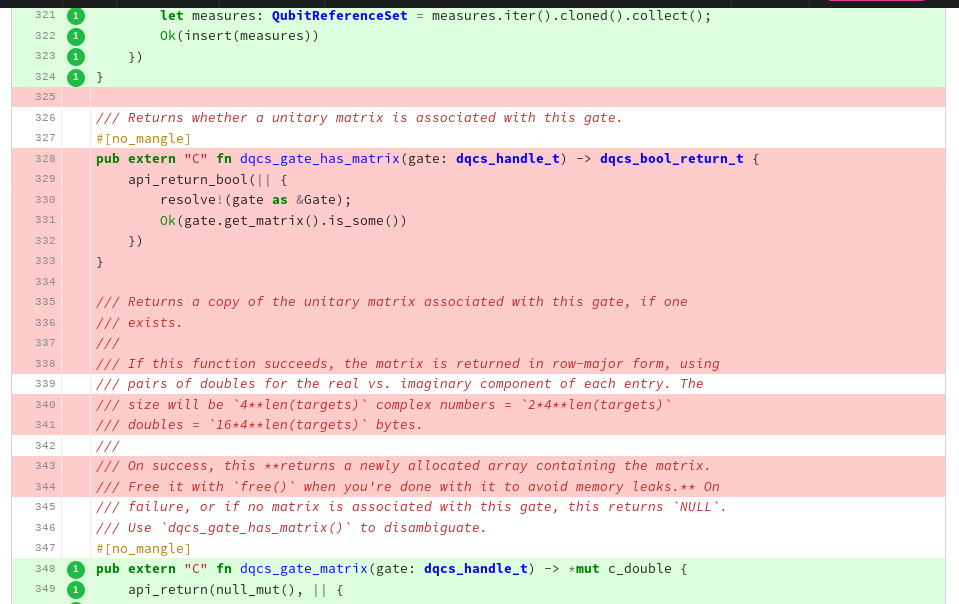Assuming Cargo's and Travis' behavior hasn't changed significantly since this question was posted, there are a couple of things at play here.
- Whenever a build configuration changes, your build's fingerprint changes, resulting in a full or partial rebuild and a new filename for the resulting binary in
target. Admittedly I'm not aware of the intricacies of exactly when or why this happens, I just know that it happens. In fact, for the project I'm working on, Cargo seems so confused about one of the dependencies that it forces a rebuild almost every single time.
- Travis'
cache: cargo default is pretty dumb; it caches all of $CARGO_HOME and target without exceptions. Note that this in combination with the former also means that these caches grow without bound, so you need to throw them away once in a while or use a smarter caching scheme.
for file in target/debug/myproject-*[^\.d] runs kcov for all builds of myproject, regardless of whether it's newly built or from Travis' build cache. Older builds may of course have different line numbers since they were built from different (older) sources, and coverage may be different.- coverage.io merges coverage results by making a line red if it is included in any report, unless it's covered by any (other) report. It doesn't show any indication whatsoever if the line numbers from different reports don't match up, or even if one of the reports contains line numbers beyond EOF. In fact, as far as I could find, it doesn't even show which binaries covered/did not cover a line number even though it has this information. You have to download the XML reports and interpret them manually to see that.
Therefore, those uncovered lines might not (all?) be due to the way Rust compiles its binaries as the comments to the question suggest, but might in fact be referring to a different (older) source file entirely. This became pretty obvious in our project after a while...
![borked coverage results]()
If it's not this obvious, the easiest way to verify that this is what's going on is to just throw away Travis' build cache and force a rebuild.
Since incremental builds don't really work for our project anyway, the solution we used was to just not have Travis cache the target directory, as suggested here. Depending on how much your CI build time depends on incremental builds you may be forced to do something smarter.




unwrap: it is quite possible thatunwrapis inlined and you never cover the branch that panics. Therefore kcov believe there is a non-covered branch on theunwrapcall. – Caudexkcov– Jambeauunwrap. And how it's possbile not-teken branch ifunwrapinvoked? – Jambeau}s, though, because I would expect them to be related toRETinstructions at least. Could be that your functions were inlined so no code for returning had to be generated... – Coblenz